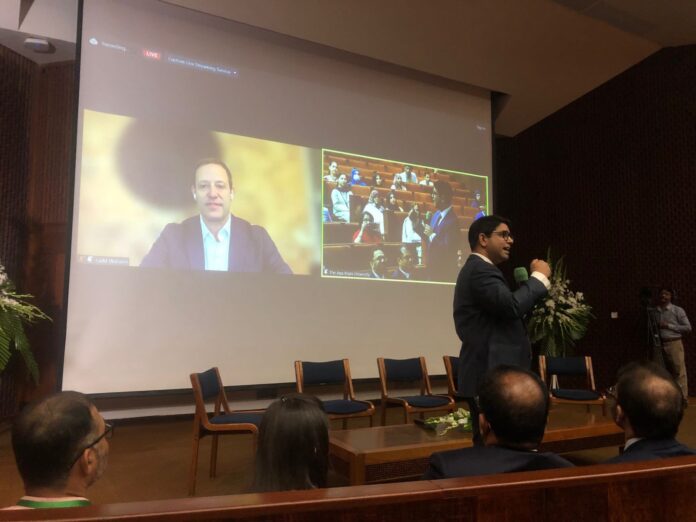KARACHI:
Judd Walson, an American infectious diseases expert, became the chair of International Health at Johns Hopkins University on Friday. He spent his first hour on the job speaking at a conference in the Global South – at Aga Khan University in Pakistan.
This was significant given what he had to say about institutions in Europe and the United States working with those in Africa or South Asia.
“People are recognising the incredible power imbalances in how decision-making is happening in the global health space,” said Dr Walson, speaking over Zoom, to deliver the keynote speech at the fifth annual research week of AKU’s paediatrics and child health department.
The question now is, how can research and decision-making be re-centred to institutions based in low and middle-income settings and “away from that [which is] happening in the global north and being pushed on institutions in the global south,” he said, stressing that wealthy nations could not dictate less affluent ones on how to study disease.
These conversations are made possible by “strong bi-directional institutional partnerships”, such as, the one he has been fortunate enough to have with AKU, added Dr Walson.
Read First Children Resource Centre to be set up
His encouragement for institutions in the US and Europe to re-orient their approach strongly resonated with AKU’s theme for research week this year, “thriving together, looking forward,” to move beyond a child’s survival.
Speaking at the event, chief guest Nadia Jamil, an actor and child protection activist, stressed that, “Children have an inclination to thrive. You give them an opportunity and they will lean towards healing”.
Panellists stressed that research cannot take place without working in communities, with AKU Paediatrics Chair Dr Fyezah Jehan thanking the department teams for building trust with families.
“A published paper takes months, or even years, to develop. It emerges, however, as the first single data point that is collected out in the field, far from the campus, between a vulnerable mother and child and one of our community health workers,” she said.
The result of this effort? “We’re now witnessing tangible outcomes of efforts initiated over a few decades ago. Our research has made a real-world difference, slashing mortality rate for babies by a staggering 35%, mothers 2.5 fold and children by 50% in the field sites we serve,” said Dr Jehan.
Meanwhile, Dr Adil Haider, the dean of medical college at AKU, emphasised on the institution’s dedication to advancing medical knowledge holistically and driving innovation in maternal, newborn and child health. “Policy and clinical practice rooted in scientific research is the answer,” he said.
AKU’s Research Week attracted students and healthcare practitioners from institutions across Karachi and beyond for 21 workshops, covering topics such as statistical computing, metagenomics, neonatal ventilation, pediatric endocrinology, and unraveling clinical genetic test results.







